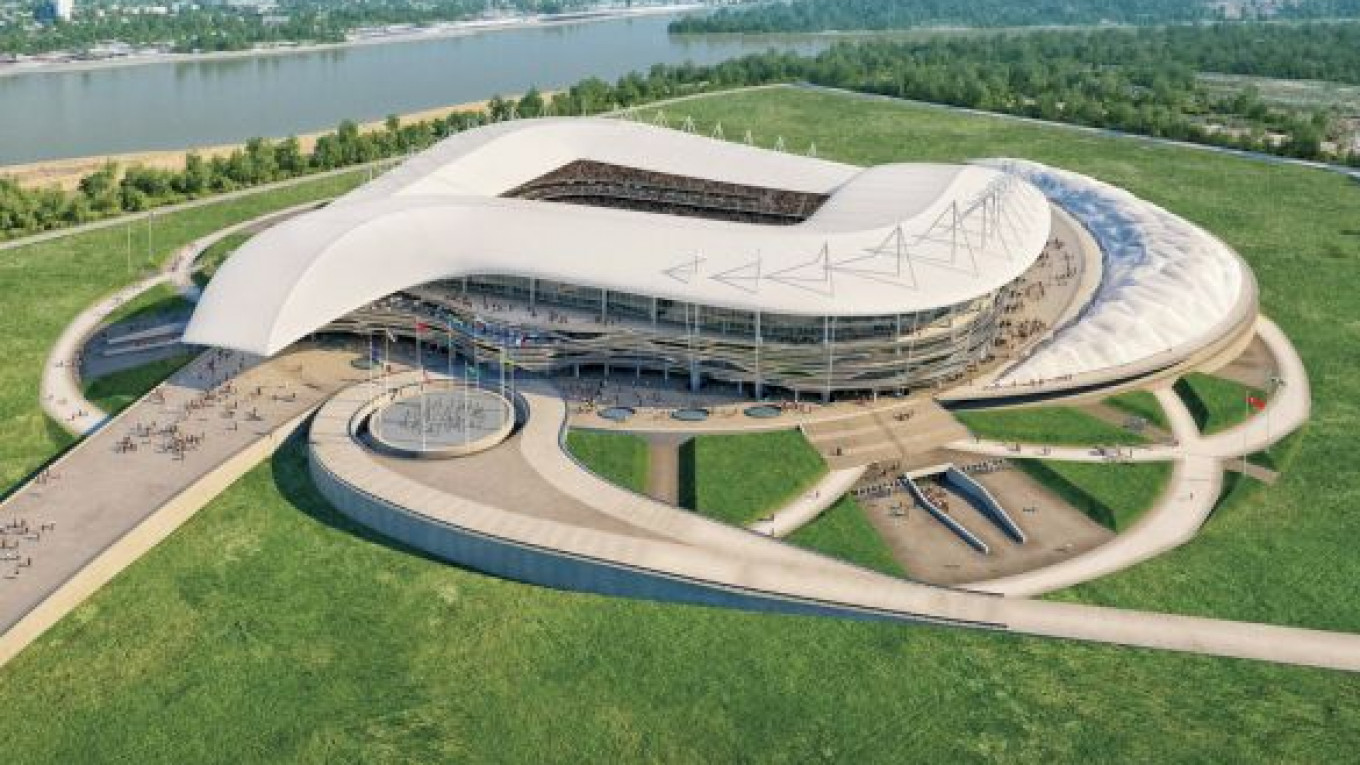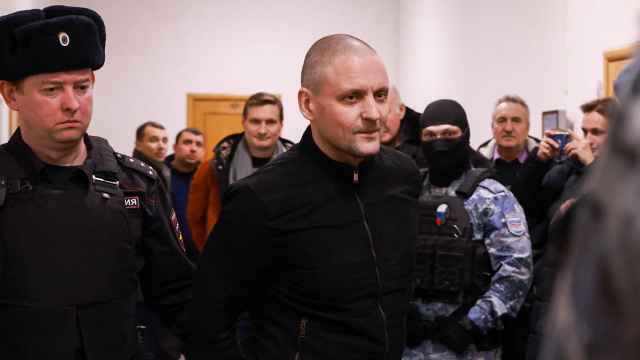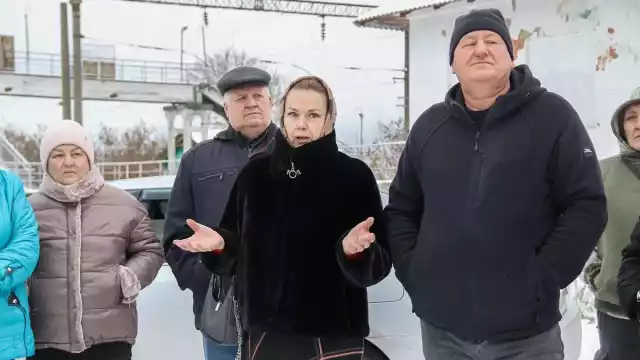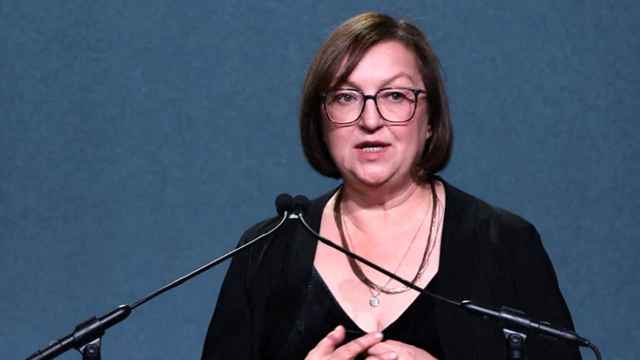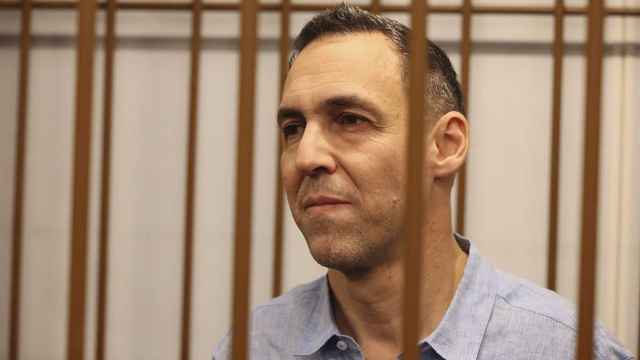Many of the Russian cities hosting the 2018 World Cup will have trouble finding the money to build soccer stadiums and improve transit links and other infrastructure, the Standard & Poor's ratings agency has warned.
Seven of the 11 Russian host cities will have to borrow money or receive much more support from the federal government than is now planned, the U.S. ratings agency said.
Unless the Russian government steps up its fundingб "the current poor state of municipal infrastructure in the host cities means the standards of infrastructure at tournament venues are likely to be lower than in the past," S&P said in a report.
The Russian government estimates the total 2018 World Cup budget at $22 billion, which already is much higher than Brazil's budget of $13.6 billion for the 2014 World Cup. The Russian government has also said it would restrict its World Cup support to sports-related construction.
Russia's local governments, however, have put the total cost for the 2018 World Cup at up to $43 billion, which includes new metro lines, roads, airports and utility upgrades.
But for most of them, "slowing economic growth, material spending pressure triggered by a presidential call for public salary increases and very modest fiscal flexibility" will make it difficult to find sufficient funds, Standard & Poor's said.
S&P said four Russian cities should have no trouble covering their 2018 World Cup expenditures: Moscow, St. Petersburg, Kazan and Sochi. Among the remaining seven, those facing the biggest difficulties are Kaliningrad, Samara and Saransk, it said.
Michel Platini, president of the European soccer body UEFA, met with President Vladimir Putin in Sochi on Wednesday after touring some 2014 Olympic construction sites with Russia's sports minister.
"Honestly speaking, it would have been much more interesting to see the stadiums being built for the World Cup," Platini said. "In any case, I can state that the work is going ahead."
Putin thanked Platini for praising the performance of the Russian national soccer team in the 2014 World Cup qualifiers.
"To hear such an assessment from such a specialist like you is really nice," Putin said during the televised meeting.
In its report, S&P encouraged Russia's federal government to step in as it haв done ahead of other international events, including the 2014 Winter Olympics in Sochi, but cautioned that Russia might find this more difficult now because of slower economic growth and higher spending.
Russian expenditures for the 2014 Sochi Olympics are estimated to eventually be about $50 billion — the most expensive Olympics ever, significantly higher than the $14.3 billion spent by London in 2012.
The ratings agency report said Russia's federal and local governments might have underestimated their World Cup costs because "budgets for large capital projects in Russia have often exceeded initial estimates."
One main reason for this is Russia's rampant corruption, which is particularly high in road construction and other building projects.
Related articles:
A Message from The Moscow Times:
Dear readers,
We are facing unprecedented challenges. Russia's Prosecutor General's Office has designated The Moscow Times as an "undesirable" organization, criminalizing our work and putting our staff at risk of prosecution. This follows our earlier unjust labeling as a "foreign agent."
These actions are direct attempts to silence independent journalism in Russia. The authorities claim our work "discredits the decisions of the Russian leadership." We see things differently: we strive to provide accurate, unbiased reporting on Russia.
We, the journalists of The Moscow Times, refuse to be silenced. But to continue our work, we need your help.
Your support, no matter how small, makes a world of difference. If you can, please support us monthly starting from just $2. It's quick to set up, and every contribution makes a significant impact.
By supporting The Moscow Times, you're defending open, independent journalism in the face of repression. Thank you for standing with us.
Remind me later.


